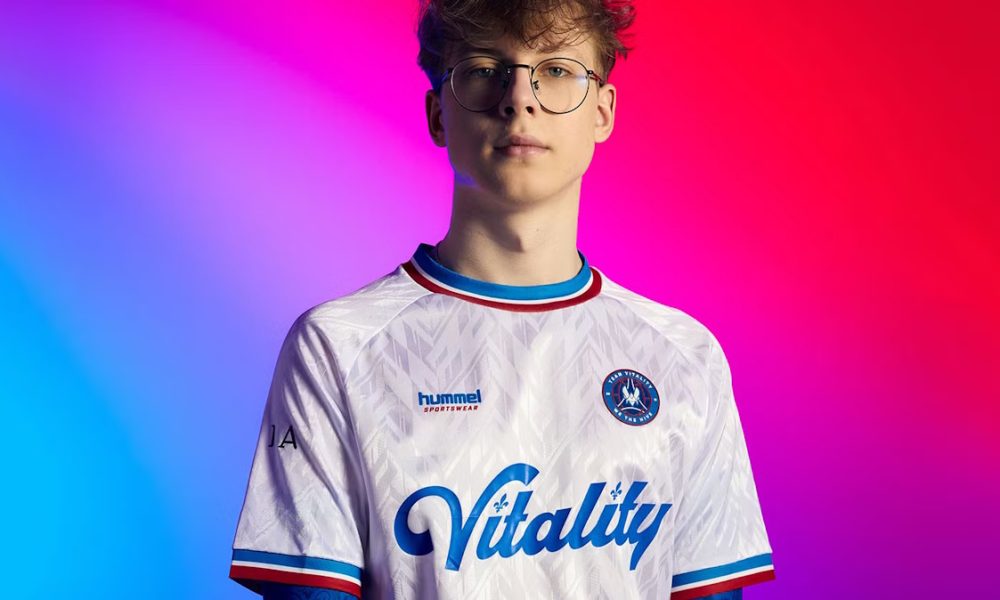eSports
DMCC Publishes Latest “Future of Trade” Report on Gaming and Esports
Gaming revenues are expected to almost double by 2027 from 2021 in the Middle East and North Africa (MENA) region, reaching USD 6 billion, according to DMCC’s latest Future of Trade 2023 report titled “Gaming in the Middle East and North Africa (MENA): Geared for growth”. A young and digital-savvy population, high levels of digital connectivity, and government support are driving the region’s emergence as a consumer and creator hub.
Gaming and esports are both fast growing consumer segments, benefiting from rapid advancements in technology as well as broader and more inclusive audiences. The UAE and Saudi Arabia lead the region, supported by high income levels, strong digital engagement, and public investment initiatives. Globally, Asia Pacific constitutes the largest market share and China, the US and Japan are the largest individual markets.
The report gathers contributions from key industry leaders to establish the critical drivers of the industry’s accelerated growth in the MENA region and beyond. It also examines the impact on gaming and esports from a technology, culture and business perspective, covering global consumer trends, the emergence of MENA as a gaming and esports hub, and the key challenges that the industry needs to address to increase revenues further.
Guiding the global industry’s accelerated growth from nearly USD 200 billion in revenues in 2021 to USD 340 billion in 2027, the report outlines a set of key recommendations for governments and businesses, namely:
- Diversify esports revenue streams from sponsorship to new direct-to-fan monetisation models – including digital merchandising, loyalty programmes and training platforms for amateur gamers – to boost revenues.
- Develop appropriate regulatory safeguards to ensure privacy, security and safety online in the digital gaming ecosystem and provide a business-friendly environment – including smoother visa systems to allow esports professionals and audiences to attend live events – to attract talent into the region and elevate it into a global industry leader.
Ahmed Bin Sulayem, Executive Chairman and Chief Executive Officer, DMCC, said: “Gaming has come to the fore of entertainment globally, driving rapid growth especially in the MENA region, which now constitutes 15% of the global player base. The rise of gamification in areas such as education, healthcare, and other sectors has demonstrated gaming’s role in facilitating economic activity more broadly. Ensuring the accelerated growth of the gaming sector will have a measurable impact on the future of markets around the world, as well as the future of trade. As DMCC seeks to solidify Dubai’s reputation as a global trade and economic hub, efficiently activating opportunities within the gaming sector will prove essential.”
Among the most closely watched segments is esports, which is expected to post revenue growth of 23.3% between 2019 and 2024 in MENA. Fuelling this is the region’s young demographic, engagement from international broadcasters and sponsors, and government support. Tapping into this economic potential, DMCC partnered with YaLLa Esports, the Dubai-based professional esports organisation, to launch the DMCC Gaming Centre in December 2022. The Centre supports the growth of the industry in Dubai by providing gaming businesses with access to global capital, leading industry talent, and an ecosystem that allows them to operate efficiently and with confidence.
Due to the UAE’s strong business environment and infrastructure, as well as its status as a gateway to the Middle East and Asia Pacific regions, various international gaming developers have set up their regional headquarters in the country. Ubisoft is based in Abu Dhabi, while the gaming giant Tencent set up its MENA HQ in Dubai along with Riot Games. In Saudi Arabia, the kingdom has included gaming as a core element of its Neom project and has already made investments worth over $1.7 billion on the gaming industry.
eSports
Global Esports Federation confirms program for Los Angeles 2026 Global Esports Games

The Global Esports Federation at its 16th Board Meeting approved the draft program for the Los Angeles 2026 Global Esports Games, to be held in December 2026. This follows the earlier announcement of Los Angeles as host city at a major ceremony hosted by Los Angeles Times Media Group Executive Chairman & CEO Dr. Patrick Soon-Shiong, Los Angeles Mayor Karen Bass, and El Segundo Mayor Chris Pimentel—now marking a significant milestone on the road to GEF’s flagship event in the United States.
The GEF Board also unanimously elected Paul J. Foster as President of the Global Esports Federation. Paul, who is GEF Chief Executive Officer, was appointed President ad interim following the resignation of founding President Chris Chan in July, and now assumes the role of President & CEO through December 2027.
In addition, the GEF Board approved the establishment of frameworks to develop the esports ecosystem in the United States, anchored in Los Angeles. This initiative will strengthen the GEF’s connections with stakeholders worldwide and reinforce its mission to elevate esports for all.
The outcomes of GEF 16th Board Meeting reaffirm the GEF’s role as a convening platform, uniting athletes, publishers, Member Federations, and partners to power the future of esports globally.
The post Global Esports Federation confirms program for Los Angeles 2026 Global Esports Games appeared first on Gaming and Gambling Industry in the Americas.
eSports
TEAM VITALITY AND HUMMEL LAUNCH ALTERNATE JERSEY AND EXCLUSIVE APPAREL COLLECTION

- Team Vitality launches 2025 Alternate Jersey and an exclusive apparel collection, bringing a new level of energy and excitement for fans.
- The jersey, featuring a white base with red and blue accents, pays homage to the French flag and will be worn by all Team Vitality athletes at major esports events taking place in France later this year, including the Rocket League Worlds and EVO Nice.
- The Alternate Jersey is available today for €79.99, both online and at Team Vitality’s official Paris store.
Team Vitality is proud to unveil its new Alternate Jersey, accompanied by an exclusive apparel collection. This launch completes the club’s annual merchandise lineup, following the release of the black Pro Jersey earlier this year and the iconic yellow US-style Jersey worn during the Austin Major triumph.
This Alternate edition, featuring the French blue, white and red, honours Team Vitality’s Parisian roots while celebrating the major esports events set to close out the year in France.
The jersey will feature on the global stage with the Rocket League team at the World Championships from September 12 to 14.
PERFORMANCE MEETS LIFESTYLE
The Alternate Collection features a new, stylish jersey and a limited-edition clothing line that blends performance and lifestyle. As with every year, the Alternate Jersey is traditionally white, serving as a complement to the black Pro Jersey released earlier in the year.
Designed in collaboration with hummel, the jersey combines comfort and performance, offering a lightweight fit built to withstand the demands of competitive play. The accompanying exclusive apparel collection follows the same artistic vision, offering clothing and accessories designed for everyday wear. This brand-new lifestyle range, along with exclusive items, reflects the club’s distinctive style.
ALTERNATE JERSEY
- Team Vitality’s Alternate 2025 Jersey – €79.99
- Team Vitality’s Alternate 2025 Sleeves – €29.99
- Exclusive Vitality Alternate 2025 Pack – €79.99 (includes 1 Alternate Jersey and a complimentary pair of exclusive sleeves)
LIFESTYLE COLLECTION
- Team Vitality Alternate 2025 Sweatshirt – €59.99
- Team Vitality Alternate 2025 T-Shirt – €29.99
- Team Vitality Alternate 2025 Jacket – €69.99
- Team Vitality Alternate 2025 Joggers – €54.99
ACCESSORIES
- Team Vitality Alternate 2025 Scarf – €19.99
- Team Vitality Alternate 2025 Flag – €24.99
- Collector Cards (set of 3 or 8 trading cards) – €5.99
- Mouse Pad (small / large) – €19.99 / €29.99
The post TEAM VITALITY AND HUMMEL LAUNCH ALTERNATE JERSEY AND EXCLUSIVE APPAREL COLLECTION appeared first on Gaming and Gambling Industry in the Americas.
Asia
Skyesports Wraps Up Gaming Thiruvizha – Chennai Edition With 17,000+ Fans in Attendance

Skyesports, the premier global IP and community builder, has successfully wrapped up the first-ever edition of Gaming Thiruvizha at the Chennai Trade Centre on August 30–31, bringing together more than 17,000 fans across two unforgettable days of gaming, anime, stand-up comedy, cosplay, music, and culture.
Gaming Thiruvizha turned out to be more than an event as it became a two-day carnival. From esports showdowns at LAN zones to cosplay walks, live stand-up, and Tamil cultural showcases, the Chennai crowd transformed the Trade Centre into a festival that truly belonged to them. Fans didn’t just attend; they stayed, celebrated, and created memories together.
The audience mix was as vibrant as the festival itself: college students, families, and kids all came together, proving that gaming and anime are no longer niche hobbies, but shared cultural movements.
Powered by AMD, with ticketing exclusively on KYN, Gaming Thiruvizha was hosted in association with the Sports Development Authority of Tamil Nadu (SDAT) and supported by AGS Cinemas as the Chennai Edition Theatre Partner.
Commenting on the conclusion of the Gaming Thiruvizha, Shiva Nandy, Founder and CEO, Skyesports, said, “We couldn’t have asked for a better first edition of the Gaming Mahotsav. The energy of the crowd and the diversity of the audience reminded us why we built this IP — to bridge the gap between casual gamers and esports, and to create a space where gaming, anime, and culture thrive together. Next up, we will be bringing the concept to Bangalore in late September,” said Shiva Nandy, Founder and CEO of Skyesports.
The festival also welcomed dignitaries including Meghantha Reddy (Sports Development Authority of Tamil Nadu), Darez A. (MD, Guidance Tamil Nadu), and Gayathri Thyagarajan (Founder & CEO, Kynhood Technologies), underlining the growing recognition of gaming and esports as part of Tamil Nadu’s cultural and creative economy.
Highlights of the event include:
- LAN tournaments across BGMI, Valorant, and other titles, with fans cheering players on in true stadium style.
- A pan-India Cosplay competition bringing cosplayers from across the country with stunning costumes judged by top creators and anime experts.
- Red Bull Armageddon, India’s first all-Armageddon format chess tournament, brought together over 350 players in Chennai with International Master Tania Sachdev and Grandmaster M. Shyam Sundar leading the action.
- Merch alleys buzzing with anime and gaming collectibles alongside local Tamil art.
- Stand-out experiential booths and meet-and-greets with Team Tamilas, Autobotz Esports, and Welt Esports.
- PVR Cinemas set up local food experience stalls for attendees
With India on track to reach 700 million gamers by 2027, and anime/cosplay engagement skyrocketing across social media, Gaming Thiruvizha demonstrated that hyperlocal, immersive festivals are the way forward.
Gaming Thiruvizha is the first chapter of Skyesports’ Gaming Mahotsav, a six-city touring pop culture festival with regional editions in Bengaluru, Hyderabad, Mumbai, Kochi, and Pune. Each stop blends gaming, anime, music, comics, and local culture into one cohesive community celebration.
The post Skyesports Wraps Up Gaming Thiruvizha – Chennai Edition With 17,000+ Fans in Attendance appeared first on European Gaming Industry News.
-

 gaming3 years ago
gaming3 years agoODIN by 4Players: Immersive, state-of-the-art in-game audio launches into the next generation of gaming
-
EEG iGaming Directory9 years ago
iSoftBet continues to grow with new release Forest Mania
-
News7 years ago
Softbroke collaborates with Asia Live Tech for the expansion of the service line in the igaming market
-
News7 years ago
Super Bowl LIII: NFL Fans Can Bet on the #1 Sportsbook Review Site Betting-Super-Bowl.com, Providing Free Unbiased and Trusted News, Picks and Predictions
-
iGaming Industry8 years ago
Rick Meitzler appointed to the Indian Gaming Magazine Advisory Board for 2018
-
News7 years ago
REVEALED: Top eSports players set to earn $3.2 million in 2019
-
iGaming Industry8 years ago
French Senator raises Loot Boxes to France’s Gambling Regulator
-
News7 years ago
Exclusive Interview with Miklos Handa (Founder of the email marketing solutions, “MailMike.net”), speaker at Vienna International Gaming Expo 2018









